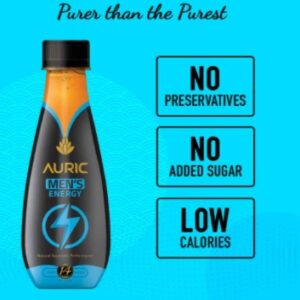Did you know about the Physiological and Metabolic functions of Dietary Fibres? What dietary fibres do our bodies have to maintain a healthy and balanced diet?
Here is all information regarding the Physiological and Metabolic functions of Dietary Fibres.

Dietary fibres are non-starchy substances and complex carbohydrates. They digest slowly compared to simple carbohydrates.
They undergo various physiologic and metabolic functions to serve protective functions in our body.
Physiological and Metabolic Functions of Dietary fibres:
The functions of fibres on the Gastro-esophageal intestinal tract are influenced by the interaction between fibres, dietary components and bacterial flora.
You Can Also Read Role of Dietary Fibres in Diabetes Mellitus Management.
Do Dietary fibres necessary for a Healthy Diet?
Effects on Nutrients:
The barrier to Digestion:
Dietary fibres act as a physical barrier between digestive enzymes and nutrients by enveloping them. Legumes consist of lower glycaemic index foods which help to decrease the absorption of glucose.
The seed’s coats of legumes are thick; these are breakdown barriers.
Nutrient absorption:
Dietary Fibres are Complex Carbohydrates, these are susceptible to physical disruption during cooking, processing and mastication into simpler fine particles.
The pectin in the aqueous phase leads to delaying the uptake of absorbable nutrients by the epithelial cells in the inner lining of Mucosa.
Nutrient Binding Capacity:
The soluble fibres in agar and guar gum are beneficial for the Binding of nutrients such as Ca, Zn and Fe.
Water-holding capacity, Viscosity and enzymatic Functions:
Usually, hemicellulose, pectins, lignins and gums are water-soluble fibres, these fibres possess water holding capacity in the digestive system.
Reduce Nutrients Diffusion Rate:
Dietary Fibres help to reduce the diffusion of nutrients by passing from the linen of the small intestine through a glycoprotein(Mucin) rich water layer lying on the top of enterocytes.
Delay Stomach Emptiness:
Dietary Fibres make nutrients remain in the stomach for a longer duration and slow the digestive function because lipids and carbohydrates remain in the stomach and undergo no digestion and create the fullness of the stomach (satiety).
Reduce Enzymatic Functions:
Dietary Fibres hinder the action of intestinal peptidases and pancreatic lipase.
Fibres act as an anti-enzymatic agent by reducing the functions of enzymes penetrating food substances.
Adsorption and Binding Capacity:
Mucilaginous fibres like pectin, Psyllium, and guar gum delay the absorption of glucose responsible for lowering the concentration of glucose levels.
Fibre can absorb acids in the digestive tract and decrease the pH of gastric acids.
Modify Mineral Balance:
Microbial proliferation from slowly fermentable fibres may be helpful for binding minerals within the microbial cells and cause loss of minerals from the body assuming colonic mineral deposition.
The minerals such as Zn, Fe and Ca bound to these fibres components are released as fermentation occurs and may be absorbed in the colon.
Decreases the absorption of Lipids:
Soluble and Insoluble fibres can decrease lipid absorption by adsorbing fatty acids, bile acids and cholesterol in the digestive tract.
Fibres can bind lipid and make it non-absorbable in the small intestine and move into the large intestine, it will be excreted in faeces or degraded by bacteria that exist in the intestines.
Decreases the concentration of serum cholesterol:
The research illustrated that the production of propaganda from the bacterial degradation of fibres lowers the concentration of serum cholesterol.
The reduced HMG CoA reductase activity results in reduced hepatic cholesterol synthesis and lowers blood cholesterol concentrations.
Degradability of Fibers:
Detoxification of body:
Bacteria such as L acidophilus reduced the activity of enzymes that convert procarcinogens into carcinogens.
Fibres help to develop some bacteria in the colon, restricting the growth of tumours and helping to prevent the possibility of cancer, also beneficial for removing toxic substances.
Enhance Fecal volume:
Fibres increase the faecal or stool volume by adding bulk to the diet. Also helps to reduce colon transit time and intraluminal pressure of colons.
Fibres promote soft, bulky and lubricating stool by holding water content in the bulk.
Wheat bran consists of high content of insoluble fibres and resists colon fermentation to prevent the formation of unwanted gas in the intestines.
Explore More Organic Healthy Food Products On “FOODVEZ”
Stay Healthy.



